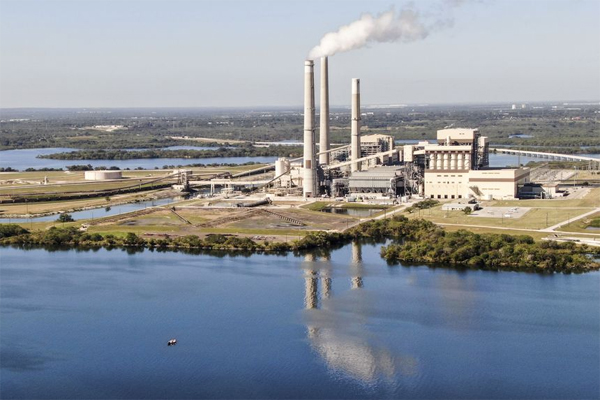The decision reverses a federal judge’s ruling and is the latest twist in the administration’s climate-policy goals

caused by greenhouse-gas emissions.(Tannen Maury/Shutterstock)
Katy Stech Ferek , WSJ
WASHINGTON
EnergiesNet.com 03 18 2022
The Biden administration can move forward on policies that incorporate an increased estimate of the cost of climate change, a panel of judges ruled late Wednesday, reversing a decision by a federal judge last month.
The ruling marks the latest development in the Biden administration’s attempt to adopt a more than sevenfold increase in a metric called the social cost of carbon, which assigns a dollar value to the harm caused by greenhouse-gas emissions.
In an eight-page decision, the U.S. Court of Appeals for the Fifth Circuit said federal agencies would be harmed if they were prevented from using the interim estimates in the rules that the Environmental Protection Agency, the Transportation Department and other federal agencies are developing on climate-related issues. Those interim estimates were released in February 2021.
The decision reverses a Feb. 11 ruling by U.S. District Judge James D. Cain in Lake Charles, La., who had sided with 10 states with Republican attorneys general that sued the Biden administration over the interim estimate
The states, in their lawsuit, said the Biden administration’s metric will “entail a massive expansion of the federal government’s regulatory power and justify unprecedented increases in regulatory restrictions on agriculture, energy, and virtually every other human activity.

will cost many more trillions than anticipated, WSJ looks at how the funds could be spent, and who would pay. (Illustration: Preston Jessee/WSJ)
Judge Cain granted the states a preliminary injunction blocking use of the proposed increase, while the lawsuit unfolds.
The metric is used in guiding a variety of government decisions, including the sale of energy leases on federal lands. The Biden administration moved last year to tentatively raise the value to $51 a metric ton, up from $7 a metric ton under the Trump administration. The administration was expected to finalize the value later this year.
In earlier court documents, lawyers for the federal government warned of a regulatory paralysis at several federal agencies because of Judge Cain’s court order and said that decision could shut down work at several agencies.
The administration has been using the metric in more than 100 new rules and decisions, including programs like energy-conservation standards for housing drafted by the Energy Department and a multibillion-dollar grant program for railroads and mass transit run by the Transportation Department. The Interior Department said Judge Cain’s ruling could delay lease sales.
The appeals court judges said that the federal government was likely to win the case once it fully plays out in the courts and that halting the use of the metric would cause irreparable harm.
The appeals court’s ruling also said that the 10 states that sued lack the status to do so because the injury they face—“increased regulatory burdens”—is hypothetical.
“The interim estimates on their own do nothing to the” states that have sued, the ruling said.
Cory Dennis, a spokesman for Louisiana Attorney General Jeff Landry, said that the office disagrees with the appeals court’s finding that the states lack the status to challenge President Biden’s “latest attempt to inject the federal government into the everyday lives of Americans.” He said the state will ask a wider panel of judges to reconsider.
Environmental groups that support increasing the value of the social cost of carbon emissions said the latest court decision is practical.
“This common-sense decision simply allows the government to continue its usual consideration of the costs of climate damage, but we need a lot more than that from the Biden administration,” attorney Kassie Siegel, director of the nonprofit Center for Biological Diversity’s Climate Law Institute, said in a statement. “When it comes to the climate, Biden can’t continue business as usual.”
The social cost of carbon measurements help federal regulators quantify the value that climate change has on activities such as agricultural productivity, human health and property damage from increased flood risk or other natural disasters.
Specifically, the metric is a set of numbers that monetizes the social costs of three planet-warming greenhouse gases: methane, nitrous oxide and carbon dioxide, the most prevalent greenhouse gas that is released from burning oil and gas.
Katy Stech Ferek at katherine.stech@wsj.com
wsj.com 03 17 2022







